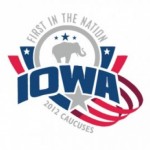Iowa caucus, early primaries really do matter every election 
by Joseph P. Tartaro, Executive Editor
Weeks before the Iowa Republican caucus balloting on January 3, many political commentators in almost every media format began trying to denigrate the importance of that event. “Does the Iowa vote actually matter,” they began, even though most of them had been earning their keep by writing and talking endlessly about the very thing they claimed was not important. Those who had actually traveled to Iowa to stalk the candidates found themselves surrounded by the Americans they know least about in a part of the nation they frequently refer to as “flyover America.”
These political pundits have been playing the same tune—more intensified—ever since the Iowa results became public. Mitt Romney won by the barest of margins over Rick Santorum who, just weeks earlier, had been relegated to the political scrapheap. However, no candidate gained any overwhelming advantage.
This column goes to the printer the day before the New Hampshire primary on Jan. 10, and weeks before the Jan. 21 South Carolina primary and Jan. 31 Florida and Oregon primaries. All of these different states, and most of those that will follow in February—Colorado, Minnesota, Missouri, Arkansas, and Michigan—are also part of what the elitists refer to as “flyover America,” but each of them is important. Each primary, of course, may cause further shifts in the strengths of different GOP candidates. Those who finish way back in the pack will find it more difficult to raise campaign funds, get serious media attention and public exposure, retain campaign staff and district grassroots voter support.
While some of the commentators continue to downplay the importance of each small state primary, every one of these tests will have a bearing on the final outcome: the selection of a Republican candidate to oppose Democrat Barack Obama. These experts overlook the fact that the early primaries are all about “retail” politics, where the candidates are required to get out and meet voters, often one voter at a time. There are few filters between the voters and the candidates. The questions posed are often as direct as an American can phrase them. And the answers are expected to be as direct.
So far, it seems no Republican candidate has been able to garner the level of support needed to be a frontrunner. Each candidate seems to have a minor base of support, but none has fired up the kind of widespread support they will need in November.
Still, commentators like Craig Crawford on the Huffington Post, a left-leaning online news journal, continue to defend their thesis that the Hawkeye State’s caucuses don’t matter.
Taking a page from late night comedian Dave Letterman, Crawford comes up with his top ten reasons “why Iowa doesn’t matter.
“1. Caucuses don’t even pick binding convention delegates,” he says, but doesn’t explain why then so many in the media flocked to the state.
“2. The winner’s raw vote total would fill one fourth of an NFL stadium,” he sneers.
“3. Only 100,000 of the state’s 3 million residents participate,” but that’s probably more than show up for lots of binding primaries.
“4. Presidents Gephardt, Huckabee, Harkin, Robertson,” he cites in an effort to show how the state’s caucus has never launched a successful campaigner.
“5. Saying its worth is “winnowing” the field is like the family dog eating table scraps,” Crawford says, ignoring the many dogs who live quite well on table scraps.
“6. The winner gets maybe six unbound delegates out of more than 1,100 needed for the nomination,
“7. Iowa has five times more hogs than people,” as an elitist might expect in “flyover” country.
“8. Iowa ranks 30th in population and 22nd in obesity,” see point 5, 6 and 7.
“9. At 96.14-percent Caucasian, Iowa is whiter than a Justin Bieber Christmas-in-Norway Special (courtesy of Will Durst),” Crawford says, showing again that at least the voters in middle America don’t meet his standards for diversity, even though the color and native languages of a lot of Iowa voters might surprise him.
And Crawford ends with “10. After all this, 41 percent still can’t make up their minds?!”
But Crawford, and others like him have probably forgotten how much Iowa mattered to the presidential aspirations of the late “liberal lion” Sen. Edward Kennedy.
In 1980, Kennedy and his fellow liberals mounted a campaign to knock out sitting President Jimmy Carter so that Kennedy could take up the family mantel in the White House. Apparently they believed that the former governor of Georgia wasn’t delivering the kind of leadership some in his party wanted during his four years as president.
While many in the top-ranked elite media circles and Democrat politics flocked to Kennedy’s banner as he challenged Carter, the Democrat caucus voters shunned the candidate from Massachusetts, largely because, even as devout Democrats, they couldn’t stomach the senator’s position on guns for self-defense and recreation. They went for Carter, shaky as he was on the gun issue, instead of Kennedy, and because Iowa does matter after all, Kennedy then abandoned his campaign. Furthermore, at least some Democrats in Congress began to understand why the gun rights issue, like Iowa, really does matter.
At least one anti-gun Democrat congressman from Massachusetts told the Wall Street Journal and us at Gun Week, that after the 1980 Iowa experience he understood that the gun issue was holding up the liberal agenda. He remained anti-gun, but he had learned that the gun issue could sink a candidate. It is not surprising since then that so many liberal Democrats have strutted around Iowa and elsewhere wearing hunting clothes and carrying shotguns.
There’s an old expression about clothes making the man, but in the case of anti-gunners like Al Gore and John Kerry, hunting clothes don’t make a pro-gun politician.



